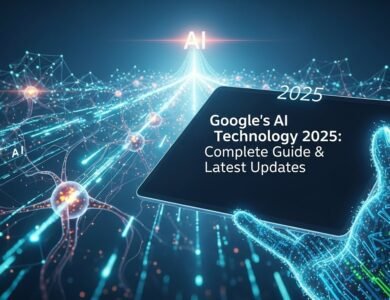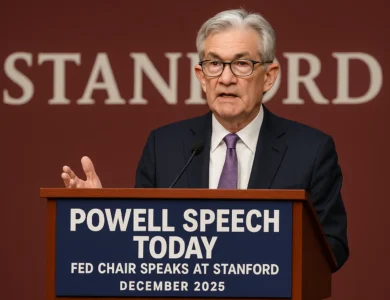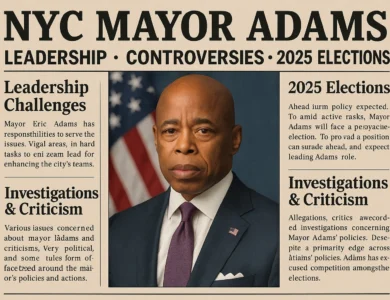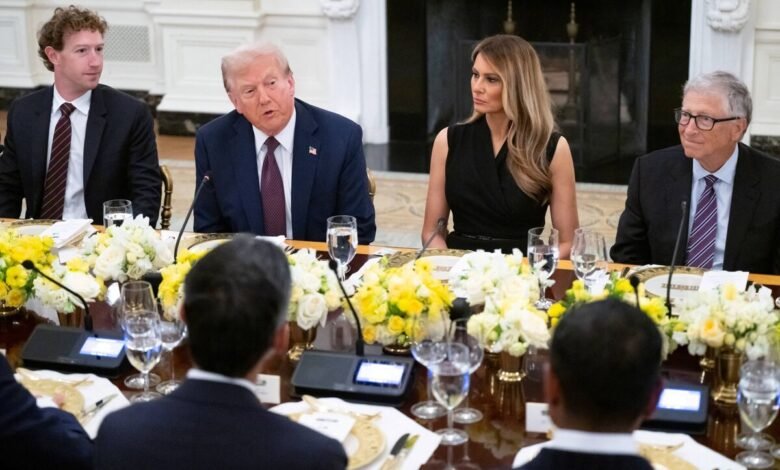
In a striking development that has captured Silicon Valley’s attention, Elon Musk sidelined from Donald Trump’s White House dinner became the most talked-about absence at one of the most exclusive tech gatherings in recent memory. The Tesla CEO and former close Trump ally was conspicuously missing from Thursday’s Rose Garden dinner, which hosted over a dozen of America’s most powerful technology executives, including Meta’s Mark Zuckerberg, Apple’s Tim Cook, and Microsoft co-founder Bill Gates.
The White House tech executive dinner represented a significant diplomatic outreach by the Trump administration to Silicon Valley’s elite, seeking to bridge relationships between the federal government and the technology sector that drives much of America’s economic growth. However, the glaring absence of one of the world’s wealthiest individuals and most influential tech figures has sparked intense speculation about the current state of Trump-Musk relationship dynamics and what this means for future technology policy directions.
This high-profile exclusion is particularly noteworthy given Musk’s previous role as a close advisor to Trump during the early days of the administration. Musk claimed he was invited to the tech leader summit but chose not to attend, stating he would send a representative instead. However, the circumstances surrounding his absence have raised questions about whether this was truly a voluntary decision or reflects deeper tensions between the two prominent figures.
The implications of Elon Musk’s White House absence extend far beyond personal politics, potentially affecting everything from space policy and electric vehicle initiatives to social media regulation and artificial intelligence governance. Understanding the context and consequences of this exclusion requires examining the complex relationship between two of America’s most powerful and unpredictable personalities, and what their apparent estrangement might mean for the technology sector’s future relationship with federal policy.
The Star-Studded Guest List: Who Made the Cut
Tech Titans in Attendance
The Trump tech CEO dinner brought together an unprecedented collection of Silicon Valley’s most influential leaders. The carefully curated guest list included Meta founder Mark Zuckerberg, Apple CEO Tim Cook, Microsoft founder Bill Gates, and OpenAI founder Sam Altman, representing the cream of American technology innovation and economic power.
Confirmed Attendees at the White House Dinner:
- Mark Zuckerberg – Meta CEO and Facebook founder
- Tim Cook – Apple CEO
- Bill Gates – Microsoft co-founder and philanthropist
- Sam Altman – OpenAI CEO
- Additional dozen tech executives from major AI and technology firms
The presence of these particular executives signals the Trump administration’s focus on artificial intelligence, social media platforms, consumer technology, and emerging digital technologies. Each attendee represents billions in market capitalization and millions of American jobs, making their presence at the White House both economically and politically significant.
Strategic Selection Criteria
The White House Rose Garden dinner guest list appears to have been strategically crafted to include leaders who can influence key technology policies and economic directions. The inclusion of both established tech giants like Gates and Cook alongside newer AI pioneers like Altman suggests a comprehensive approach to technology sector engagement.
Key Sectors Represented:
- Social Media and Platforms – Meta’s Zuckerberg
- Consumer Electronics – Apple’s Cook
- Enterprise Software – Microsoft’s Gates legacy
- Artificial Intelligence – OpenAI’s Altman
- Various other AI and tech firms
The strategic nature of these invitations underscores the Trump administration’s recognition that technology policy will be crucial for America’s economic competitiveness and national security in the coming years.
Musk’s Notable Absence
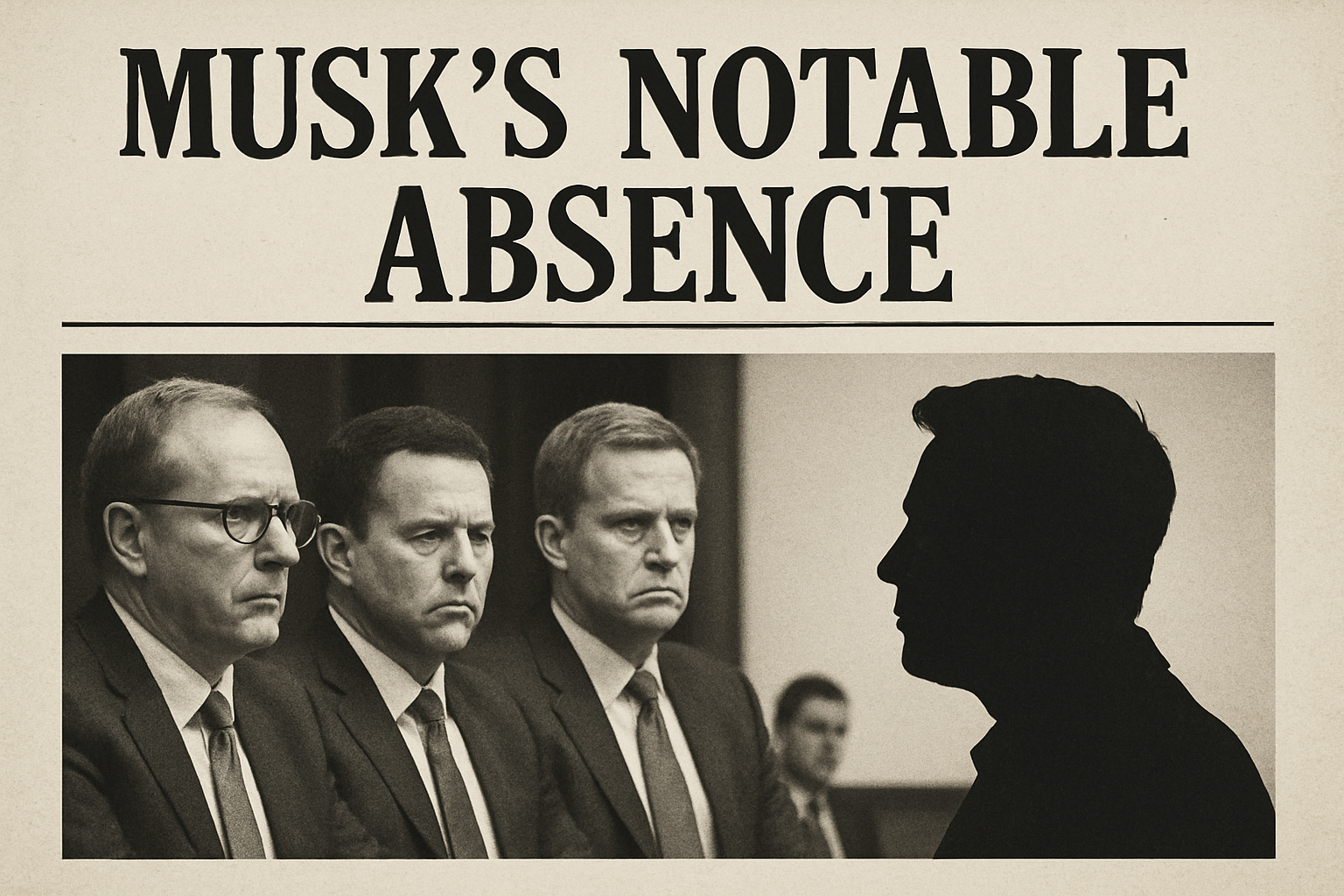
Statements and Claims
Elon Musk stated he was invited to the White House reception but chose not to attend, suggesting the absence was his personal decision rather than an intentional exclusion by the Trump administration. However, the timing and circumstances of this decision have raised questions about the true nature of his non-attendance.
Musk’s Public Position:
- Claimed invitation received – According to his social media statements
- Personal choice not to attend – Cited scheduling conflicts
- Representative sent instead – Attempted to maintain diplomatic relations
- No detailed explanation – Limited public commentary on reasons
Behind-the-Scenes Tensions
Tech billionaire Elon Musk, a staunch Trump ally before the two men had a public falling out, is not expected to attend, indicating that their relationship has deteriorated significantly from its previous close collaboration. This falling out appears to be connected to several policy disagreements and personal conflicts.
Potential Contributing Factors:
- Policy disagreements on technology regulation
- Personal conflicts over public statements
- Competition for influence within administration circles
- Business interests that may conflict with administration priorities
The Trump-Musk relationship strain has been building over several months, with both figures making public statements that suggest increasing distance between their previously aligned positions.
The Trump-Musk Relationship Timeline
From Alliance to Estrangement
The relationship between Trump and Musk has undergone dramatic changes, evolving from mutual support to apparent antagonism. Understanding this trajectory is crucial for interpreting the significance of Musk’s exclusion from White House events.
Relationship Evolution Phases:
- Early Cooperation – Shared goals on deregulation and business growth
- Close Advisory Role – Musk’s informal advisor status
- Growing Tensions – Policy disagreements begin to surface
- Public Disagreements – Open conflicts on social media and policy
- Current Estrangement – Limited cooperation and public distance
Key Conflict Points
Several specific issues appear to have contributed to the deterioration of their relationship:
Major Disagreement Areas:
- Space Policy – NASA contracts and space exploration priorities
- Electric Vehicle Incentives – Federal support for EV adoption
- Social Media Regulation – Approaches to platform governance
- Immigration Policy – H-1B visas and skilled worker programs
- AI Governance – Regulatory approaches to artificial intelligence
Trump cited the revocation of nominations as one of the reasons Musk was upset with him, suggesting that personnel decisions may have been a significant factor in their falling out.
Industry Reactions and Silicon Valley Politics
Tech Sector Response
The Silicon Valley political dynamics surrounding Musk’s absence have generated significant discussion within technology industry circles. Many executives and industry observers see this as indicative of broader tensions between the technology sector and federal policy approaches.
Industry Perspectives:
- Concern about policy uncertainty – Tech leaders worry about regulatory direction
- Questions about access and influence – How exclusions affect industry input
- Competitive implications – Whether absence affects business relationships
- Future collaboration prospects – Long-term industry-government relations
Media and Public Reaction
The tech executive dinner controversy has attracted widespread media attention, with various outlets interpreting the significance differently. Social media discussions have been particularly intense, reflecting the high public interest in both Trump and Musk’s activities.
Public Discourse Themes:
- Power dynamics in Washington-Silicon Valley relations
- Personal vs. policy conflicts between public figures
- Implications for technology innovation and federal support
- Future of tech industry influence in policy-making
Policy Implications of Musk’s Exclusion
Impact on Space and Transportation Policy
Musk’s companies, SpaceX and Tesla, are heavily involved in federal contracts and policy areas that could be affected by his strained relationship with the Trump administration. The policy consequences of Musk’s absence could have far-reaching implications for American space exploration and electric vehicle adoption.
Potential Policy Areas Affected:
- NASA contracts and space missions – SpaceX’s role in federal space programs
- Electric vehicle incentives – Tesla’s position in EV policy discussions
- Infrastructure development – Charging networks and transportation policy
- International space cooperation – America’s space diplomacy efforts
Broader Technology Policy Landscape
The exclusion of such a prominent technology figure from key policy discussions could affect the development of crucial technology policies. Musk’s policy influence absence might shift the balance of input on critical issues like AI governance, space commercialization, and clean energy transitions.
Critical Policy Areas:
- Artificial Intelligence regulation and development
- Space commercialization and national security
- Clean energy transitions and climate policy
- Social media governance and free speech issues
- Immigration policy for skilled technology workers
Business and Market Implications
Stock Market and Investor Reactions
The financial implications of political tensions between high-profile figures like Trump and Musk can have significant market effects. Tesla stock and SpaceX valuations may be influenced by perceived changes in federal support or regulatory approaches.
Market Considerations:
- Tesla stock performance relative to administration policies
- SpaceX contract prospects and federal space spending
- Regulatory environment for Musk’s various business interests
- Investor confidence in long-term government relations
Competitive Advantages and Disadvantages
Other technology companies may benefit from Musk’s apparent exclusion from key policy discussions. Companies like those represented at the dinner may gain enhanced access and influence over technology policy development.
Competitive Dynamics:
- Enhanced access for dinner attendees to policy makers
- Potential regulatory advantages for companies with better administration relations
- Market positioning benefits from closer government ties
- Long-term strategic advantages in policy influence
Future Implications for Tech-Government Relations
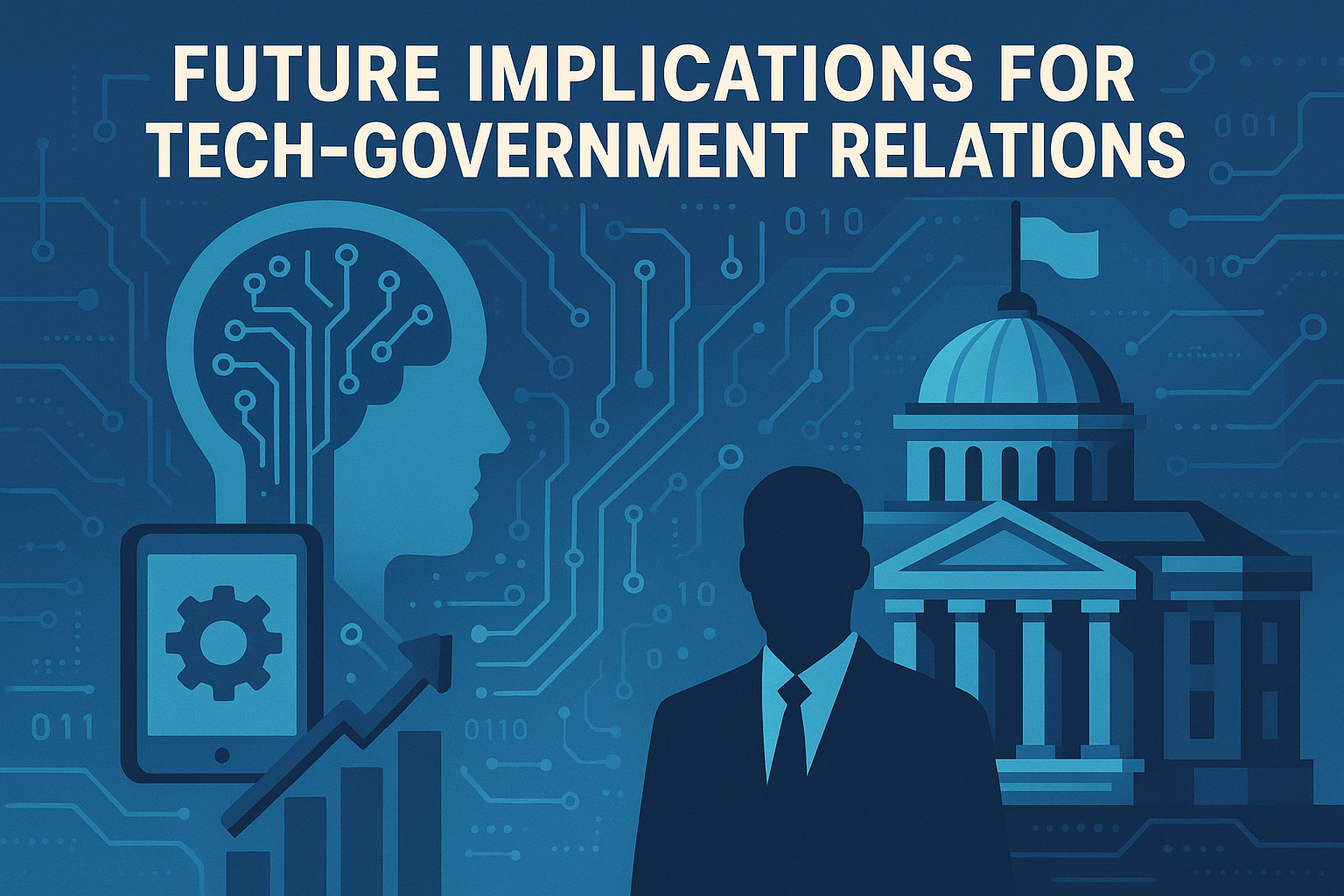
Precedent for Industry Relations
The White House tech industry engagement approach demonstrated by this dinner, including notable exclusions, may establish patterns for future administration-industry interactions. The selective invitation process suggests a more transactional approach to technology sector relations.
Emerging Patterns:
- Reward system for administration-aligned positions
- Exclusion consequences for perceived opposition or non-cooperation
- Policy access tied to political relationships
- Industry fragmentation based on political alignments
Long-term Relationship Prospects
The question of whether Trump-Musk relations can be repaired remains open, with significant implications for American technology leadership and innovation policy. Both figures have shown capacity for dramatic relationship changes in the past.
Reconciliation Possibilities:
- Shared interests in American technological competitiveness
- Business necessity for cooperation on federal contracts
- Political calculations about mutual benefit
- External pressures from industry and international competition
International Competitive Context
Global Technology Leadership
The American tech competitiveness implications of internal political divisions among technology leaders could affect the nation’s ability to compete with international rivals, particularly China’s rapidly advancing technology sector.
International Implications:
- Unified policy approach challenges with divided tech leadership
- Innovation coordination difficulties due to political tensions
- International partnerships affected by internal conflicts
- Global perception of American technology sector unity
Strategic Communication Challenges
The public nature of the Trump-Musk conflict may complicate American technology diplomacy and international cooperation efforts. Foreign governments and companies may see opportunities to exploit perceived divisions among American technology leaders.
Analysis: What This Means Moving Forward
Short-term Implications
The immediate consequences of Musk’s White House dinner absence are likely to be felt in policy discussions, business relationships, and public perceptions of both figures. The technology sector will be watching closely for signs of how this affects federal contracts, regulations, and innovation support.
Immediate Effects:
- Policy discussion participation – Reduced Musk influence on tech policy
- Business relationship impacts – Potential effects on federal contracts
- Public narrative – Media focus on relationship tensions
- Industry positioning – Other companies potentially benefiting from Musk’s absence
Long-term Strategic Considerations
The broader implications for American technology leadership and innovation policy may be significant. The relationship between government and private sector innovation leaders is crucial for maintaining technological competitiveness and advancing national interests.
Strategic Questions:
- Innovation coordination – How political divisions affect technology development
- International competitiveness – Unity vs. division in facing global challenges
- Policy effectiveness – Impact of excluding major technology figures
- Future precedents – How this approach affects other industry relationships
Also Read: Trump Keeps U.S Troops in Poland, Cuts Others in Europe
Conclusion
The story of Elon Musk sidelined from Donald Trump’s White House dinner with US tech executives represents more than just a high-profile absence from an exclusive gathering. It reflects deeper tensions between two of America’s most influential figures and highlights the complex relationship between political power and technological innovation in the modern era.
The notable absence of Elon Musk from a guest list that included Microsoft co-founder Bill Gates, Apple CEO Tim Cook, and Meta CEO Mark Zuckerberg sends a clear signal about the current state of relationships between the Trump administration and one of the world’s most prominent technology entrepreneurs. Whether this exclusion represents a temporary cooling of relations or a more permanent estrangement remains to be seen.
The implications extend far beyond personal politics, potentially affecting crucial policy areas including space exploration, clean energy transitions, artificial intelligence governance, and America’s overall technological competitiveness. The tech industry political dynamics demonstrated by this dinner and its notable exclusions may establish new patterns for how government and industry leaders interact in the coming years.




